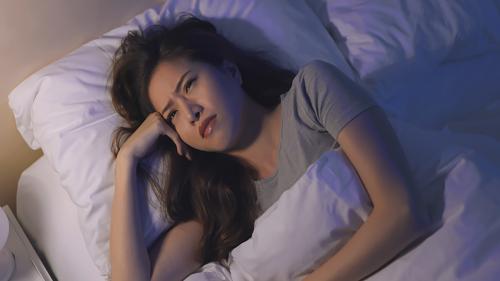Sleep Problems
From the FDA Office of Women's Health

Basic facts about sleep
Sleep is essential for overall health and well-being. Quality sleep helps boost your mind and mood and can help prevent health problems. Most adults need 7-8 hours of sleep each night, but not everyone gets the sleep they need. Women are more likely than men to have sleep problems. Women experience unique factors such as hormonal changes during the menstrual cycle, pregnancy and menopause that can affect how well a woman sleeps.
Other factors that can affect sleep include:
- Stress
- Health problems and medicines
- Long work hours/shift work
- Light or noise
- Drinking alcohol or eating too close to bedtime
If you have trouble falling asleep or staying asleep most nights, you may have a sleep problem called insomnia.
Some people have more serious sleep problems. Talk with your health care provider if you:
- Fall asleep during the day
- Snore or make choking sounds in your sleep
- Have odd feelings in your legs or feel like you need to move your legs
Medicines to help you sleep
There are medicines that may help you fall asleep or stay asleep. Some sleep medicines require a prescription from a health care provider. Other sleep medicines are available over-the-counter (OTC) without a prescription. Sleep medicines work best and are safest if you use them for a short time along with lifestyle changes.
Prescription medicines
Prescription sleep medicines work well for many people, but they can cause serious side effects.
- Sleep medicines can affect activities that require complete mental alertness, such as driving or operating heavy machinery.
- Many prescription sleep medicines have a Medication Guide (MG). These guides address issues that are specific to certain medicines and classes of medicines. They contain FDA-approved information that can help patients avoid serious adverse events. Ask your pharmacist if your medicine has a Medication Guide.
- Talk with your health care provider about all the risks and benefits of using prescription sleep medicines.
Over-the-counter (OTC) medicines
OTC sleep medicines may have side effects too. Read the OTC Drug Facts Label to learn more about the side effects of your OTC sleep medicine.
Tips for better sleep
Making some changes to your nighttime habits may help you get the sleep you need.
- Go to bed and get up at the same times each day.
- Sleep in a dark, quiet room.
- Avoid caffeine and nicotine.
- Don’t drink alcohol before bedtime.
- Don’t take a nap after 3 p.m.
- Don’t eat a large meal before you go to sleep.
- Avoid or limit electronic screen time, especially from phones and computers, before bed.
- Do exercise regularly, but not right before bedtime.
- Do something to help you relax before bedtime.
Talk with your health care provider if you have trouble sleeping almost every night for more than 2 weeks.

